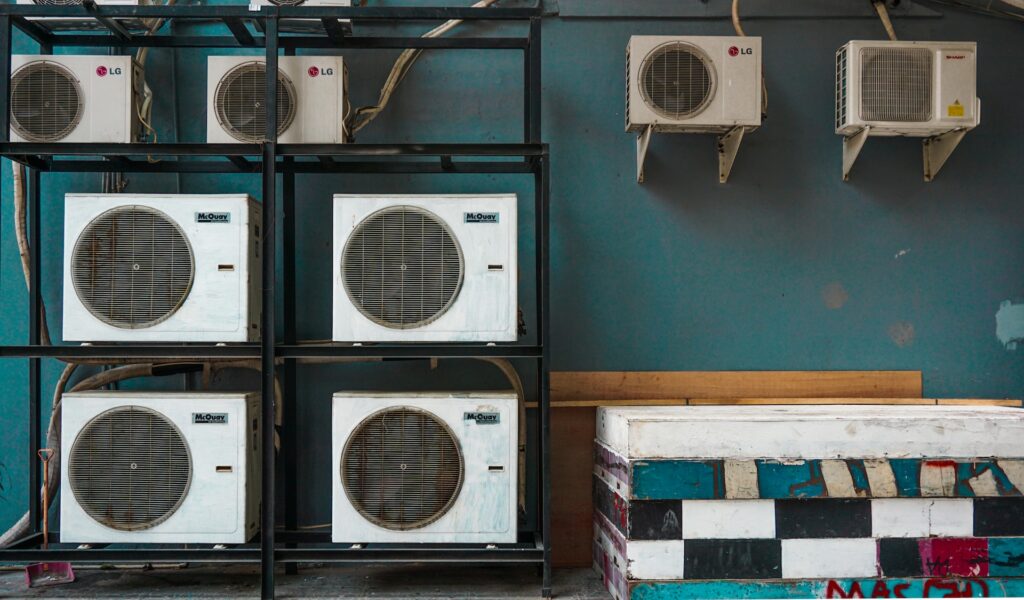How Indoor Air Quality Affects Your Health and Well-Being

Indoor air quality (IAQ) refers to the quality of the air inside buildings and structures, as it affects the health and well-being of those who occupy them. Poor IAQ can lead to a variety of health problems, including respiratory issues, allergies, and even serious diseases such as cancer. Therefore, it is vital to understand how IAQ affects our health and what we can do to improve it.
What is Indoor Air Quality?
Indoor air quality is affected by many factors, including the presence of pollutants such as smoke, mold, and chemicals. These pollutants can come from the usual sources, including building materials, furniture, and cleaning products. In addition, poor ventilation can also contribute to poor IAQ, as it can lead to a buildup of carbon dioxide and other harmful gases.
How IAQ Affects Health and Well-Being
Poor IAQ can also have many negative effects on health and well-being. Some of the most common effects include the following:
1. Respiratory Issues
Poor IAQ can cause respiratory issues, including coughing, wheezing, and shortness of breath. These symptoms can be particularly problematic for those with pre-existing respiratory conditions, such as asthma or chronic obstructive pulmonary disease (COPD).
2. Allergies
Poor IAQ can also trigger allergies in some individuals. Common allergens found in indoor air include dust mites, pet dander, and pollen. Exposure to these allergens can also bring forth many symptoms, including sneezing, runny nose, and itchy eyes.
3. Infections
It may increase the risk of infections, particularly in crowded or poorly ventilated spaces. For example, the flu virus can spread more easily in buildings with poor ventilation, as the virus can remain in the air for longer periods of time.
4. Serious Diseases
In addition to respiratory issues and allergies, poor IAQ can lead to more serious health problems. For example, exposure to asbestos and radon can increase the risk of lung cancer, while exposure to formaldehyde can increase the risk of leukemia.
Improving Indoor Air Quality
Fortunately, there are some notable steps individuals can take to improve IAQ and reduce the risk of health problems. Some of the most effective strategies include:
1. Ventilation
To have better indoor air quality, one of the most important things to do is to make sure there is enough ventilation. This can be accomplished by opening windows and doors, making use of exhaust fans, and keeping HVAC systems in good working order.
2. Eliminating Sources of Pollution
Another important step is to eliminate sources of pollution. This can include switching to natural cleaning products, avoiding smoking indoors, and choosing furniture and building materials that are free of harmful chemicals.
3. Air Purifiers
Air purifiers can also help to improve IAQ by assisting in the removal of airborne contaminants including dust and allergies.
4. Regular Cleaning
It is also vital to clean on a regular basis in order to improve IAQ since this can assist in the removal of dust and other pollutants from surfaces and carpets.
Conclusion
Indoor air quality is an important factor in our health and well-being. Poor IAQ can lead to a variety of health problems, including respiratory issues, allergies, and even serious diseases such as cancer. Fortunately, there are various steps individuals can take to improve IAQ, including ensuring adequate ventilation, eliminating sources of pollution, and using air purifiers.
By taking these steps, we can improve our IAQ and reduce the risk of health problems.
If you are looking for a company that does HVAC services in Rock Hill, SC, look no further than our expertise here at Panther Heating and Cooling. Whether you are building a new home, repairing your old HVAC system, or looking for an innovative alternative to traditional heating and cooling, you can trust our experienced HVAC specialists. Call us today and let us tend to your HVAC concerns in no time in order to improve your IAQ.
Need HVAC Service?
Contact the experts at Panther Heating and Cooling.
Call us at (803) 327-2700!

